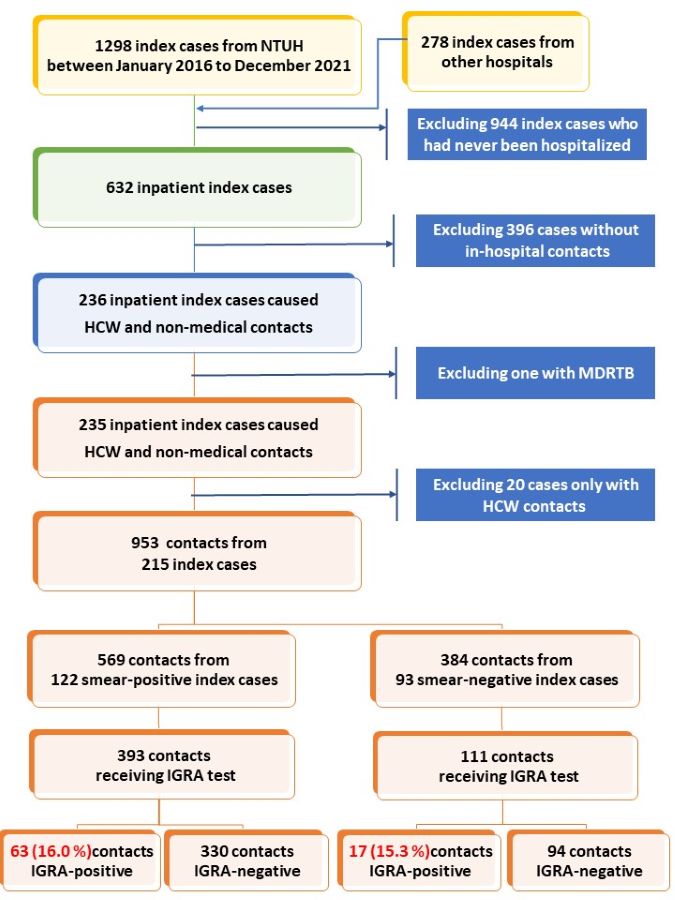Abstract
Background
Recent evidences show about 20% of tuberculosis (TB) transmission is caused by smear-negative (SmN) index. Most of the studies focused on development of secondary cases of TB, rather than latent tuberculosis infection (LTBI), and none were conducted in hospital.
Aim
This study aimed to investigate the contribution of SmN index on nosocomial LTBI transmission.
Methods
Nosocomial LTBI transmission during contact investigation was diagnosed using interferon-gamma release assay (IGRA) in a medical center in Taiwan from 2016 to 2021. Contacts of smear-positive (SmP) index and those of SmN index receiving aerosol-generating procedure were enrolled. An index case was considered infectious if any contacts were IGRA-positive. Logistic regression was used to investigate risk factors of being infectious among index.
Findings
A total of 393 and 111 contacts from 122 SmP and 93 SmN index cases received IGRA test. Among them, 43 (35.2%) SmP and 13 (14.0%) SmN index cases were infectious (p<0.001), causing 63 (16.0%) and 17 (15.3%) LTBI transmission (p=0.856), respectively. SmN index was less infectious (odds ratio: 0.20 [0.08?0.48]), but contributed to 21.3% (17 of 80) of nosocomial LTBI transmission.
Conclusion
16% of nosocomial TB contacts were infected, regardless of sputum smear status of index. In addition to SmP index, hospital TB control policy should focus on SmN index.